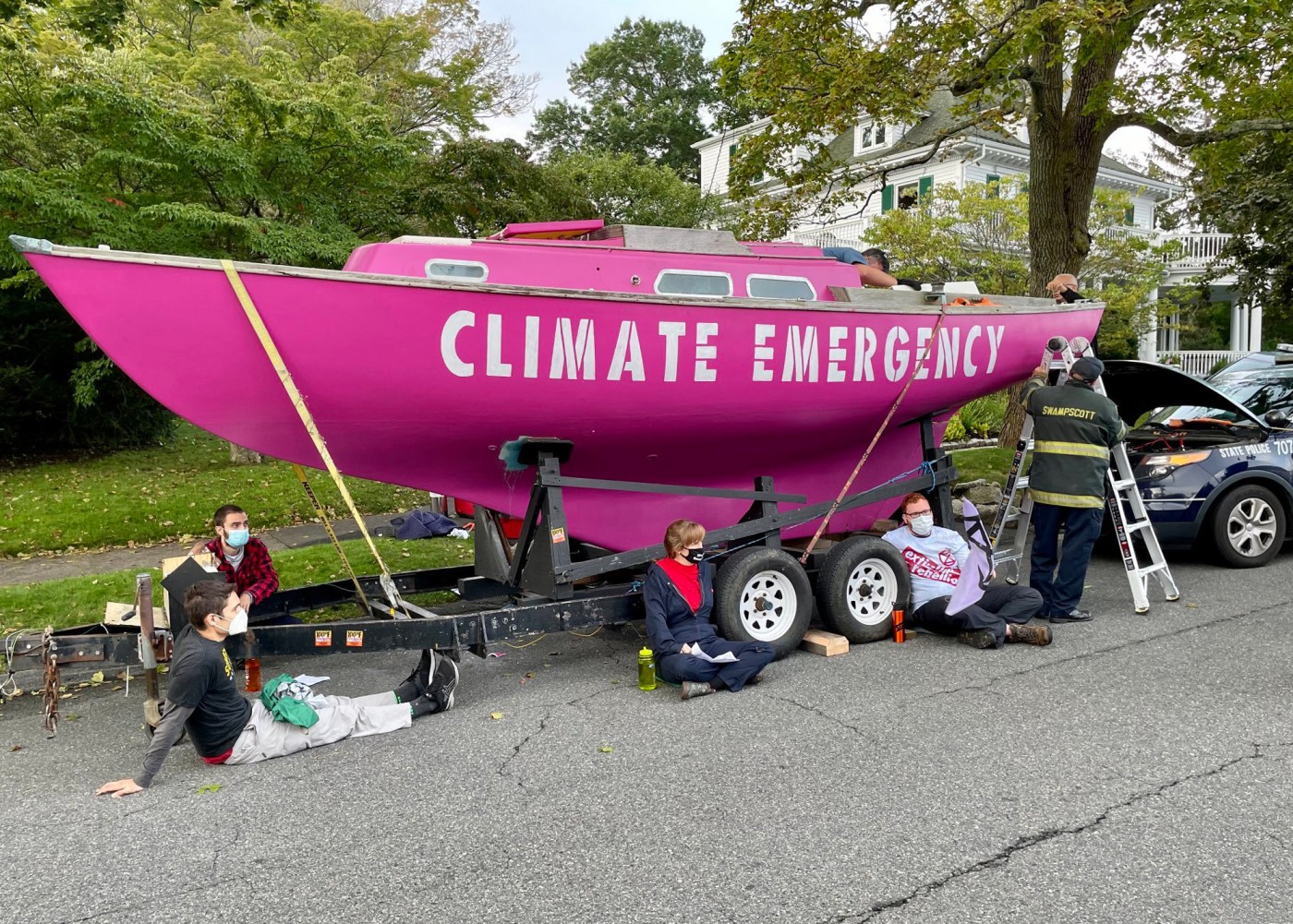
Editorial: Climate jerks overheated
The climate clowns who interrupted a suburban Rotary Club meeting last week with a willing Rolling Stone magazine reporter in tow are ignoring the cold, hard facts.
The economy would collapse if we suddenly stopped relying on fossil fuels.
Ambushing Bank of America President Brian Moynihan to harangue him in Wellesley over sustainable energy investments was just for web clicks. Rolling Stone, clinging to its very existence, is best known for glorifying mass murderer Dzhokhar Tsarnaev, so this stunt is no surprise.
Yet the climate protesters are committing the same sin so many others do — they want to see themselves on social media instead of seeking answers. They should have asked Moynihan how America can afford to go green on President Biden’s timeline.
They didn’t get beyond the disruption, but we will.
Electric cars have 80% more problems than their gas-powered cousins, Consumer Reports states. Great. That means repair shops will see an uptick in business while the rest rely on public transportation. Except the MBTA does not get you to work on time.
Renewable energy, meanwhile, stresses animals and “even kills them,” a fact even making its way into popular culture. (It’s in a “Yellowstone” TV series scene.) All those windmills and solar farms destroy plants, displace wildlife, and gobble up land, not to mention the whales swimming around who slam into the base of windmills.
It’s all just “growing pains,” Consumer Reports adds.
But that’s the point. Isn’t it?
If climate change is a threat, mandating reforms could threaten the very policies that may help cool the Earth, a Wall Street Journal expert says.
If the climate crowd stopped posing for a minute, they could have listened to Moynihan explain Bank of America’s thinking.
The bank is looking to promote the “circular economy, including solutions for renewable energy, energy efficiency, clean transportation, water and sanitation, sustainable agriculture, and carbon capture and sequestration,” according to a Reuters report.
Moynihan’s team also wants to “advance community development, affordable housing, healthcare, education, financial and digital inclusion, access to essential services, racial and gender equality, and promote environmental justice,” the report adds.
But the protesters didn’t want to hear any of that. They were too worried about unfurling their banners.
The Reuters article adds that Bank of America has invested $25 million in a “financing facility for mini-grids” in Africa.
We’re not promoting Bank of America. We are saying that change comes in phases. Even with government subsidies, the cost of an electric car today is out of reach for too many consumers. The battery life is also a knock. A lack of charging stations and the ability of EV owners to power up at home is also a deterrent.
Then, the batteries contain lithium, cobalt, manganese, nickel, and graphite. China currently dominates the supply chain, a known problem.
Moynihan would have been an ideal person to pose questions to as we move toward a net-zero carbon future. But that’s the key word. It’s in the future, and the tough questions must be asked today while still keeping people on time for work and warm at home.
For now, we say protesters you doth protest too much, methinks.


